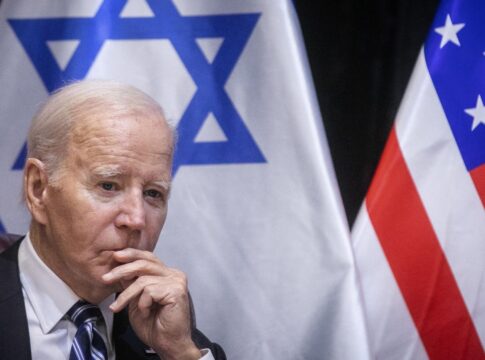In recent weeks, Israel has been under increasing pressure from the international community to cease fire and negotiate a truce in its ongoing conflict. This pressure is evident through local protests, diplomatic dissatisfaction, and significant economic actions by former allies (Haaretz).
Norway’s $1.7 trillion sovereign wealth fund, the largest in the world, has taken a decisive stand against companies that support Israel’s operations in the occupied Palestinian territories. The fund’s ethics watchdog has expanded the definition of unethical corporate behavior, potentially leading to divestment from companies involved in these activities. This new policy aligns with a legal opinion from the International Court of Justice, which highlights Israel’s settlement policies and resource usage in occupied territories as violations of international law (Reuters).
Norway’s fund, which owns 1.5% of the world’s listed shares, has already identified one company for divestment and is expected to exclude more. This move is part of broader European discontent and reflects the growing trend of ethical investment and adherence to international legal standards (Bloomberg)
The United Kingdom has also taken a significant step by suspending around 30 out of 350 weapons export licenses to Israel. Defence Secretary John Healey emphasized that, while the UK remains an ally of Israel, the suspension is due to concerns that these arms could be used in Gaza in ways that violate international law. This suspension covers parts for fighter jets, helicopters, and drones, which are pivotal in the conflict (The Guardian).
Several gatherings targeted the homes of Prime Minister Benjamin Netanyahu, with protesters lighting fires and chanting: “You are the leader – you are guilty!” The protests were intensified by the largest general strike since March 2023, called by the country’s largest labor union, Histadrut, which brought much of the country to a halt, including a two-hour stoppage of flights at Tel Aviv’s Ben Gurion International Airport (Times of Israel).
In a defiant press conference, Netanyahu insisted that Hamas must make concessions and vowed to retaliate for the killing of the hostages. This stance has been criticized by some hostage families and supporters who accuse Netanyahu of stalling efforts for a deal (CNN).
The United States, Israel’s largest arms supplier, has maintained its support, but there is an undeniable global shift towards scrutinizing and, in some cases, limiting support for Israel’s military actions. Countries like Egypt have expressed dissatisfaction with Israel’s tactics, particularly concerning the Philadelphia Corridor and ongoing hostilities (New York Times).
Local protests across various nations have also amplified the call for a ceasefire, reflecting a growing public and governmental demand for a resolution that respects international law and humanitarian principles (Washington Post).
The economic pressure on Israel extends beyond arms and ethical investments. International businesses and governments are increasingly wary of being complicit in actions deemed illegal or unethical by international standards. This shift could lead to broader economic consequences for Israel, affecting its international trade and economic stability (Financial Times).
Netanyahu’s government is facing internal and external criticism for its handling of the crisis. The protests and strikes highlight significant domestic discontent, with the largest labor union calling for a shutdown of the entire economy. The public outcry is directed towards Netanyahu’s perceived failure to prioritize the hostages’ lives over territorial control, particularly the contentious Philadelphi corridor (Jerusalem Post).
Disagreements within the Israeli government have become increasingly public. Defense Minister Yoav Gallant criticized the prioritization of the corridor over a deal to free hostages, calling it a “moral disgrace.” Netanyahu, however, has refused to withdraw from the corridor, insisting on its strategic importance (Ynetnews).
The current situation reflects no common vision within the Israeli government, exacerbating the chaos with individual government members’ speeches calling for opening new fronts in Lebanon and against Palestinians in the West Bank. The far-right National Security Minister Itamar Ben-Gvir has also opposed any negotiations, reflecting deep divisions within the Israeli cabinet. Meanwhile, US officials have urged for a ceasefire-for-hostages deal, indicating a critical juncture in the negotiations (Wall Street Journal].
The international community’s growing dissatisfaction with Israel’s actions in the occupied territories is manifesting through significant economic and diplomatic pressures. Norway’s ethical investment policies, the UK’s partial arms embargo, and widespread domestic protests highlight the complex interplay between ethics, economics, and international diplomacy in the ongoing Israeli-Palestinian conflict.
The Biden administration has finally realized that to reach a resolution, the world has to wait for the new US administration to be elected. Until then, the “Status Quo” remains, but in such a dynamic environment, there is a persistent fear that matters might spiral out of control. The current players in this political and intelligence dilemma need to exert extra efforts in maintaining the status quo towards an ultimate two-state solution, hopefully at the hands of the newly elected administration.


